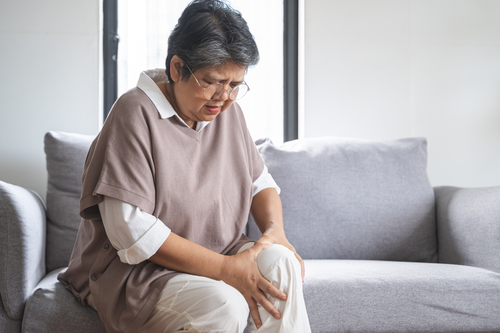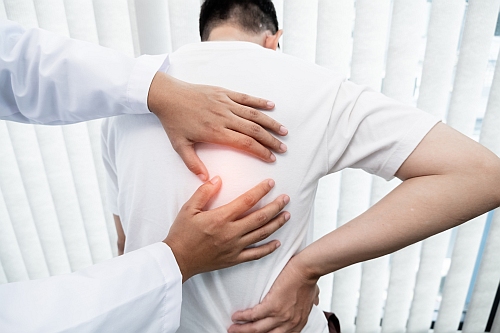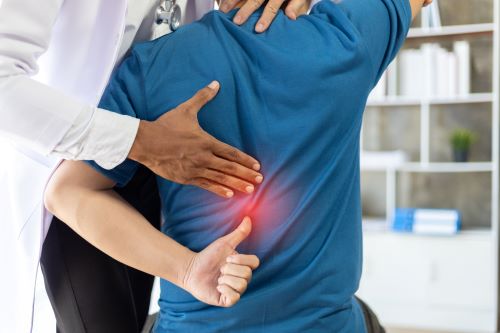Osteoporosis is a condition that makes bones weak and more likely to break. Millions of people worldwide are affected as they age. But there are steps you can take to strengthen your bones and reduce your risk. Consulting a doctor about a bone density test can provide crucial information about your bone health and the potential need for medication to prevent bone loss.
In this post, we’ll cover the top tips for preventing osteoporosis including diet, exercise, lifestyle changes, and the latest treatments. We’ll also talk about how our Atlanta Spine Center can help you have strong healthy bones for years to come. Understanding the risk of bone fractures due to osteoporosis and taking preventive measures is essential for maintaining bone health.
Exercise for Strong Bones
Having strong bones is important for overall health as we age. Exercise plays a big role in building and preserving bone density. Here are some exercises that can help you achieve and maintain healthy bones.
Weight-Bearing Exercises
Weight-bearing exercises are important for strengthening bones and are crucial for enhancing bone density and improving balance, particularly in the context of preventing osteoporosis. These activities make you work against gravity which stimulates bone formation. Here are some:
- Walking: Simple and effective way to promote bone health. Try to do at least 30 minutes most days.
- Jogging: High-impact activity that increases bone density, especially in the hips and spine.
- Climbing Stairs: Incorporate stairs into your daily routine to strengthen muscles and bone mass.
- Dancing: Fun and it improves balance and coordination and benefits your bones.
- Aerobics: Group classes or home workouts are a great way to stay active and support bone health.
Before starting any weight-bearing exercise, especially if you have been inactive or have specific age and health considerations, consult your doctor.
Resistance Training
In addition to weight-bearing exercises, resistance training is important for building muscle and bone strength. Try:
- Lifting Weights: Start with light weights and gradually increase as you get stronger. Focus on major muscle groups.
- Resistance Bands: These bands add resistance to your movements without the need for heavy weights. Great for all fitness levels.
- Pushups: Bodyweight exercise that targets multiple muscle groups and benefits bone density in the upper body.
Balance and Flexibility
Balance and flexibility are important to prevent falls which can lead to fractures. Try:
- Tai Chi: A gentle form of martial arts that focuses on slow movements that improve balance and coordination.
- Yoga: Practicing yoga improves flexibility, strength, and balance and reduces the risk of falls.
Nutrition for Bone Health
Nutrition is important to have strong bones and prevent osteoporosis. A balanced diet with essential nutrients supports bone density and overall health. Here are the key components to focus on for bone health.
Calcium
Calcium is important for building and maintaining bone mass. Aim for 1,000-1,200 mg daily if you’re over 50.
Vitamin D
Vitamin D is important for calcium absorption in the body. Without enough vitamin D, bones become weak and brittle.
Protein
Protein is another nutrient for bone health. It helps in bone formation and maintains bone density.
Lifestyle Changes to Prevent Osteoporosis
Making lifestyle changes can have a big impact on your bone health. By adopting healthy habits you can reduce the risk of osteoporosis and have strong bones for life.
Quit Smoking
Smoking has a direct link to low bone density, contributing to an individual’s risk for osteoporosis and its associated complications. Studies show that smokers have a higher risk of fractures and lower bone mass compared to non-smokers. Quitting smoking can improve your overall health and bone strength. If you need help, seek support from healthcare professionals or local quit programs.
Limit Alcohol
Excessive alcohol consumption can cause bone loss and increase the risk of falls. Limit alcohol to no more than one drink a day for women and two drinks a day for men. By moderating your alcohol intake you can maintain your bone density and overall health.
Healthy Weight
Having a healthy weight is important for bone health. Being underweight can lead to lower bone density and being overweight can increase the risk of fractures. Focus on a balanced diet and regular exercise to achieve a healthy weight. This will not only benefit your bones but your overall well-being.
Make these lifestyle changes and you’ll be preventing osteoporosis. Small changes daily can lead to big long-term benefits for your bone health. Remember every step towards a healthier lifestyle counts!
Medical Considerations for Osteoporosis Prevention
Understanding the medical aspect of osteoporosis prevention is important for bone health. Regular check-ups and awareness of risk factors can make a big impact on your approach to preventing osteoporosis.
Bone Mineral Density Test
One of the best ways to know your bone health is through a bone mineral density test. A DEXA scan will give you a clear picture of your bone density and will identify any issues. This test is recommended for:
- Women 60 and above.
- Men 72 and above.
Getting tested will help you monitor your bone health over time and take action if your bone density is low.
Medications and Risk Factors
Some medications can cause bone loss. Be aware of these and discuss them with your healthcare provider. Some common medications that can affect bone density are:
- Proton pump inhibitors (PPIs)
- Certain corticosteroids
- Anticonvulsants
It is crucial to treat osteoporosis to halt bone loss and reduce fracture risk. Consult your doctor to assess individual risks and treatment options.
In addition to medications, identify other risk factors:
- Family history of osteoporosis
- Low body weight
- Sedentary lifestyle
Manage these risk factors through lifestyle changes and medical interventions to slow down bone loss and maintain bone strength.
Early Prevention
Start early and build strong bones. Encourage a balanced diet rich in calcium and vitamin D and regular exercise from childhood. This foundation will help you achieve peak bone mass which is important for long-term bone health.
More Tips for Healthy Bones
Avoid excessive soda consumption too. Colas in particular can hinder calcium absorption which can lead to weaker bones.
And don’t forget to monitor and manage your risk factors. Consult with a healthcare provider for personalized advice to create your osteoporosis prevention plan.
Early Prevention
Osteoporosis is preventable and taking steps early in life will lay the foundation for strong bones and long-term bone health.
Start Early
Preventing osteoporosis starts in childhood. It’s important to encourage children to eat a balanced diet and exercise regularly. Establishing these healthy habits early will help you achieve peak bone mass which will impact bone health later in life.
- Balanced Diet: Make sure children eat a variety of foods rich in calcium and vitamin D. Dairy, leafy greens and fortified foods should be part of their diet. Adequate protein is also important for bone development.
- Regular Exercise: Encourage weight-bearing exercises like running, jumping, or playing sports. These activities will stimulate bone formation and build strength. As they grow, incorporate resistance training too.
- Educate on Bone Health: Teach children about the importance of healthy bones. Knowing the long-term benefits of a healthy lifestyle will motivate them to make better choices.
Dealing With Osteoporosis? Visit Our Atlanta Spine Center ASAP!
If you’re ready to take control of your bone health and prevent osteoporosis, don’t wait—reach out to our experienced team at Georgia Spine & Orthopaedics. Whether you’re looking for personalized prevention strategies or need expert care for existing conditions, we’re here to help you stay strong and active.
Contact us today at 678-929-4494 for a free case consultation!






